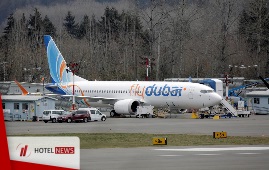
Passengers flying by Fly Dubai from September 1 to November 30 will be covered by Covid19 free treatment. This coverage includes health and quarantine costs for travelers diagnosed with the disease during the trip and is valid for 31 days from the time of the flight. Medical expenses will be up to 150,000 Euros and up to 100 Euros for each day of quarantine for 14 days.
Create: Sep 6, 2020 Edit: Sep 9, 2020 International News
Qeshm Airlines Public Relations announced; About 15,000 passengers return to Iran since the Corona restrictions were imposed by Qeshm Airlines This number of passengers returned to the country during 59 flights from March of last year to the end of June of this year. The flights have been done to Tbilisi, Istanbul, Sparta, Dubai, Denizli and Larnaca.
Create: Jun 28, 2020 Edit: Jun 28, 2020 Regional News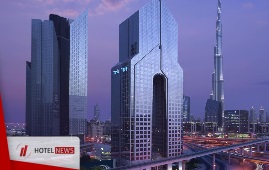
About 43,000 rooms, equivalent to three-quarters of the rooms in Dubai hotels, are likely to remain closed until early September. In Abu Dhabi, 17% of hotel rooms remain closed and the government has rented out some of the rooms for senior quarantined staff.
Create: May 25, 2020 Edit: May 25, 2020 International News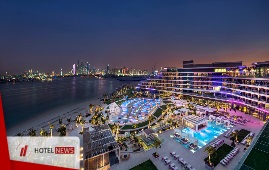
Marriott International announced it signed a record number of rooms in 2019, pushing its global pipeline to approximately 515,000 rooms as of year-end 2019 for the first time in the company’s history. The company signed 815 agreements, representing more than 136,000 rooms, marking the seventh consecutive year of record-breaking volume of organic rooms signings. Growth was fueled by unprecedented levels of organic rooms signed in each of the company’s international regions. During 2019, the company added 516 properties with more than 78,000 rooms in 60 countries and territories – an average of one new property every 17 hours. “With growth and loyalty as the cornerstones of our company’s success, our unrivaled 2019 signings illustrate our winning strategy, which combines leading brands, powerful business platforms and an enduring focus on our associates,” said Tony Capuano, Group President, Global Development, Design and Operations Services, Marriott International. “We continue to drive value for our owners with quality branding options for both property conversions and new builds, backed by our leading business support systems and loyalty platform. By staying true to our growth philosophy and continuously responding to the evolving preferences and lifestyles of travelers, we are poised for a successful 2020 and beyond.” At the end of 2019, Marriott International’s worldwide system consisted of more than 7,300 properties and roughly 1.38 million rooms in 134 countries and territories. More than half of the company’s record global development pipeline is located outside North America. “With 141 million Marriott Bonvoy members who increasingly crave travel to new cities and unique experiences around the world, a record-breaking year of deals means new, exciting properties are coming for travelers worldwide,” said Stephanie Linnartz, Group President, Consumer Operations, Technology & Emerging Businesses, Marriott International. “Our stellar growth results prove that our broad brand portfolio and platforms are resonating with owners and developers, as well as with customers.” Record-setting year for growth in valuable international markets In 2019, 53 percent of the company’s signed rooms were outside North America with record-breaking organic volumes in the company’s Asia Pacific (38,000 rooms), Europe (17,000 rooms), Caribbean and Latin America (more than 9,000 rooms), and Middle East and Africa (8,000 rooms) regions. Additionally, in 2019, Marriott International debuted its first hotels in four additional countries – Cyprus, Moldova, Kyrgyzstan and Latvia. Company extends its lead in luxury Marriott International did a record-breaking number of deals for its global luxury hotel brands, bolstering its lead in this high-value segment. In 2019, the company signed 42 luxury projects in 27 countries and territories, while opening or converting 34 properties such as The St. Regis Venice, W Dubai – The Palm, The West Hollywood EDITION and The Ritz-Carlton, Pune. As the company focuses on expanding its leading luxury footprint, it is revitalizing W Hotels. Last year, the company purchased the W New York – Union Square, with plans to transform the property into a showcase for the brand’s future look. Successful all-inclusive launch Last August, Marriott launched its all-inclusive platform to bring its brands, scale and trusted service to this growing, global vacation segment. Less than six months after its launch, the company has signed seven management and franchise agreements for all-inclusive properties representing nearly 3,200 rooms. Among the all-inclusive projects in development are an 800-room Marriott Hotels resort in Jamaica and a 240-room Ritz-Carlton resort in Mexico. The company last year also completed its acquisition of Elegant Hotels Group, which consists of seven hotels and 588 rooms located on the picturesque island of Barbados. Affordable lifestyle hotel brands buoy company growth Catering to the next generation of travelers, the company’s AC by Marriott, Aloft and Moxy brands opened nearly 10,000 rooms in 2019. Combined, these brands represent more than 65,000 open rooms in 44 countries and territories, including new hotels in Greece, Ireland, Jamaica, Latvia, Nepal and Switzerland. The company signed nearly 24,000 rooms across the AC by Marriott, Moxy and Aloft brands during the year – with record room signings for both AC by Marriott and Moxy.
Create: Feb 9, 2020 Edit: Feb 9, 2020 International News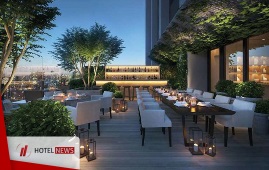
Ian Schrager and Marriott International‘s EDITION brand will open three new hotels this year, taking its sophisticated, minimalist-chic approach to luxury to Japan, Iceland and Dubai. Each EDITION is designed to feel exclusive to the city in which it is located. “All of the EDITION hotels are unique, original and one of a kind, embedded with a sense of time and place,” Schrager said in a statement. EDITION Hotels expects to open its first property in Japan with The Tokyo EDITION Toranomon, launching mid-2020. The 205-room property will house four food and beverage outlets, dedicated meeting and events spaces, a swimming pool, a fitness center and a spa, as well as EDITION’s much-loved Punch Room cocktail bar. Located in Tokyo’s upmarket Toranomon neighborhood, the hotel is expected to offer easy access to some of Tokyo’s most iconic sites, including the Tokyo Tower and Tsukiji fish market. Later in the year, The Reykjavik EDITION in Iceland will debut in the city’s downtown area. Adjacent to the prominent Harpa Concert Hall, the hotel is situated in both a vibrant and scenic part of Iceland’s historical capital, Marriott said. The hotel’s 250 rooms and suites will be complemented with a private rooftop, nightlife space and ballroom. In addition, the hotel is expected to offer guests and locals a diverse culinary offering with three restaurants and a café. EDITION will also expand its footprint in the Middle East, with the opening of The Dubai EDITION in late 2020, the second hotel in the UAE following last year’s launch of The Abu Dhabi EDITION. The property is slated to open in downtown Dubai, opposite the world-famous Dubai Mall. Plans for the hotel call for 210 rooms and suites, along with seven restaurants, swimming pools, pool deck dining, a spa and fitness center, in addition to event spaces with multiple meeting rooms and a ballroom. Since launching the lifestyle concept in 2007, EDITION currently operates 10 hotels in New York, London, Miami Beach, West Hollywood, Barcelona, Shanghai, Sanya, Abu Dhabi and Bodrum. Marriott has another 15 hotels in EDITION’s signed development pipeline which, upon opening in coming years, should more than double the brand’s footprint.
Create: Feb 8, 2020 Edit: Feb 8, 2020 International News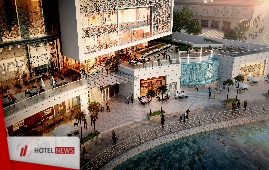
IHG announced the opening of Crowne Plaza Dubai Marina, part of the newly designed flagship properties launching globally offering a new distinctive stay experience, designed to meet the needs of the modern business traveller. Crowne Plaza hotels & resorts is one of the world’s largest upscale hotel brands, with an increasingly strong reputation for being the first choice for business-class stays. Designed with the modern traveller in mind, Crowne Plaza Hotels & Resorts know that business travel isn’t just about business – it’s about balancing work and life so guest feel fulfilled and successful. This opening represents a landmark moment for Crowne Plaza Hotels & Resorts in the Middle East and marks the beginning of ambitious expansion plans for the brand in the region. With 24 Crowne Plaza hotels (6,836 rooms) open in the Middle East (GCC, Levant and Egypt) and a further eight (2,738 rooms) in the pipeline – three of which are in the UAE and three in KSA, the brand is perfectly positioned to cater for a rising number of regional business events and travel to the Middle East. Within only a 20-minute drive to Expo 2020 Site, close proximity to important business hubs including Jumeirah Lake Towers, Jebel Ali, Dubai Media City and Dubai Internet City, Crowne Plaza Dubai Marina is set to become an important hub for business travelers in the lead up to Expo 2020. Georges Farhat, General Manager, Crowne Plaza Dubai Marina said: “Our flagship property in Dubai Marina is an exciting addition to the Crowne Plaza portfolio in the region. As a flagship property, the hotel will feature a new modern design philosophy which better meets the needs of our guests: productivity, advanced restoration and inspiration, seamlessly blending work and play. It features a new approach to lobby design, which can be used for co-working or relaxing. Its location makes it ideal for guests looking to stay ahead of their game while travelling for business; from a morning run on the marina waterfront walkway to after work chilling out in the heart of one of Dubai’s most exciting districts.” Located primely on the banks of Dubai Marina with direct access from the promenade, the 24 storey building occupies 3,037 square meters and boasts 273 stylish and ultra-modern hotel rooms including 61 Club Rooms and 32 suites. Offering panoramic views over the water, these rooms come with a number of technology-driven features to provide guests with a harmonious stay experience day and night. A spacious club lounge is located on the fourth-floor exclusively for Club guests. Crowne Plaza Dubai Marina boasts state-of-the-art meeting facilities including the Marina’s first ballroom with natural light. Located on the second floor, the spacious meeting and conference rooms occupy 460 square meters of space and are fully-equipped with advanced audio-visual technology for a seamless working experience. The property comes with a number of notable technologies driven features, designed to answer the growing trend in flexible work and life preference, and people’s desire to work from anywhere. This includes an efficient GRMS system (Guest Room Management System) which intuitively manages guest preferences including temperature, lighting and heating through a touch panel. All rooms come with a built-in Media Hub which allows guests to connect to a surround sound system with their devices using Bluetooth meaning guests can even listen to their own playlists in the bathroom. Screen mirroring technology allows guests to display content from their devices on the TV seamlessly. Crowne Plaza Dubai Marina offers a more social take on traditional business hotels, complete with six unique dining concepts including the signature Thai restaurant ‘Charm Thai’ located on the marina Promenade level with an expansive al fresco terrace overlooking the Marina Waterfront. Lo+Cale is the hotel’s main all-day dining restaurant featuring an array of international cuisines positioned on the ground floor alongside Connexions, the hotel’s lobby lounge serving coffee and ‘grab’n’go’ bites. Hive is the hotel’s lobby bar and Nara are the outdoor Arabic style shisha lounge. On the 4th floor is Aqua Marina, the sophisticated pool bar providing bites and refreshing cocktails for guests to refresh and unwind throughout the day. Health and fitness enthusiasts will enjoy a fully equipped state-of-the-art gym open 24 hours a day, seven days a week, in addition to the hotel’s new amenities with ecofriendly, all natural with no paraben products.
Create: Jan 31, 2020 Edit: Jan 31, 2020 International News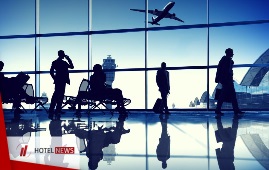
A 4% increase on the previous year which is also forecast for 2020, confirming tourism as a leading and resilient economic sector, especially in view of current uncertainties. By the same token, this calls for such growth to be managed responsibly so as to best seize the opportunities tourism can generate for communities around the world. According to the first comprehensive report on global tourism numbers and trends of the new decade, the latest UNWTO World Tourism Barometer, this represents the tenth consecutive year of growth. All regions saw a rise in international arrivals in 2019. However, uncertainty surrounding Brexit, the collapse of Thomas Cook, geopolitical and social tensions and the global economic slowdown all contributed to a slower growth in 2019, when compared to the exceptional rates of 2017 and 2018. This slowdown affected mainly advanced economies and particularly Europe and Asia and the Pacific. Looking ahead, growth of 3% to 4% is predicted for 2020, an outlook reflected in the latest UNWTO Confidence Index which shows a cautious optimism: 47% of participants believe tourism will perform better and 43% at the same level of 2019. Major sporting events, including the Tokyo Olympics, and cultural events such as Expo 2020 Dubai are expected to have a positive impact on the sector. Responsible growth Presenting the results, UNWTO Secretary-General Zurab Pololikashvili stressed that “in these times of uncertainty and volatility, tourism remains a reliable economic sector”. Against the backdrop of recently downgraded global economic perspectives, international trade tensions, social unrest and geopolitical uncertainty, “our sector keeps outpacing the world economy and calling upon us to not only grow but to grow better”, he added. Given tourism’s position as a top export sector and creator of employment, UNWTO advocates the need for responsible growth. Tourism has, therefore, a place at the heart of global development policies, and the opportunity to gain further political recognition and make a real impact as the Decade of Action gets underway, leaving just ten years to fulfill the 2030 Agenda and its 17 Sustainable Development Goals. The Middle East leads The Middle East has emerged as the fastest-growing region for international tourism arrivals in 2019, growing at almost double the global average (+8%). Growth in Asia and the Pacific slowed down but still showed above-average growth, with international arrivals up 5%. Europe where growth was also slower than in previous years (+4%) continues to lead in terms of international arrivals numbers, welcoming 743 million international tourists last year (51% of the global market). The Americas (+2%) showed a mixed picture as many island destinations in the Caribbean consolidated their recovery after the 2017 hurricanes while arrivals fell in South America due partly to ongoing social and political turmoil. Limited data available for Africa (+4%) points to continued strong results in North Africa (+9%) while arrivals in Sub-Saharan Africa grew slower in 2019 (+1.5%). Tourism spending still strong Against a backdrop of global economic slowdown, tourism spending continued to grow, most notably among the world’s top ten spenders. France reported the strongest increase in international tourism expenditure among the world’s top ten outbound markets (+11%), while the United States (+6%) led growth in absolute terms, aided by a strong dollar. However, some large emerging markets such as Brazil and Saudi Arabia reported declines in tourism spending. China, the world’s top source market saw outbound trips increase by 14% in the first half of 2019, though expenditure fell 4%. Tourism delivering ‘much-needed opportunities’ “The number of destinations earning US$1 billion or more from international tourism has almost doubled since 1998,” adds Mr Pololikashvili. “The challenge we face is to make sure the benefits are shared as widely as possible and that nobody is left behind. In 2020, UNWTO celebrates the Year of Tourism and Rural Development, and we hope to see our sector lead positive change in rural communities, creating jobs and opportunities, driving economic growth and preserving culture.” This latest evidence of the strength and resilience of the tourism sector comes as the UN celebrates its 75th anniversary. During 2020, through the UN75 initiative the UN is carrying out the largest, most inclusive conversation on the role of global cooperation in building a better future for all, with tourism to be high on the agenda.
Create: Jan 26, 2020 Edit: Jan 26, 2020 International News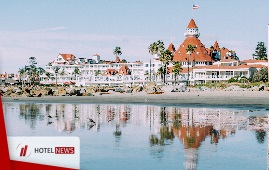
Eden Prairie (Minneapolis) MN, January 2020 … Bigger, bolder and now independent – Big Box Hotels are increasingly breaking off from major brands and deploying their expansive meeting spaces, extensive room inventory and outstanding technical services to become independent operators. It’s a growing trend that offers planners the advantages of a large hotel accommodating groups of up to 3,000 attendees while providing a level of flexibility and creativity once reserved for boutique properties and smaller brands. Teneo Hospitality Group, the leading group representation firm, is responding to this development by introducing its newest collection of member hotels – the Big Box Collection, which now includes 52 independent and smaller-branded member hotels across the United States, Europe and Dubai, United Arab Emirates. Eleven of these are offering special hot dates and incentives, available throughout 2020 and accommodating meetings in several prominent destinations including Boston, Chicago, Dallas, Honolulu, Orlando, Reno, San Diego and the Temecula Valley Wine Country in California. “This move from Big Box brands to independent status is a significant trend,” says Teneo President Mike Schugt. He notes that for the last 20-30 years, many boutique hotels have transitioned to independent or soft branded properties. This paved the way for many larger, branded properties to declare their independence and reap the benefits of autonomy. Big Box brands are able to provide far more options to planners and guests, unfettered by frequently inflexible policies of a large corporate brand. Often operating without a brand name, these newly independent hotels have embraced a creative, personalized culture based on the offering’s boutique hotels initiated 20 years ago. “We now see highly-customized, catering-to-all-your-senses experiences available to larger groups in the Big Box hotels we represent,” says Mike Schugt. Hoteliers are capitalizing on the new opportunities to bring in the best, most personalized aspects of the boutique concept – customized service that focus on issues important to guest satisfaction. These include sustainability, curated experiences, imaginative décor, music, scent, lighting, original art and architecture, raising the bar in food and beverage services – all without the cookie-cutter limitations that can be imposed by major brands. Planners should welcome this growing trend, according to Schaan Baker of Phillips Ultrasound. “The Big Box concept gives planners new options, sophisticated technical services, greater value and return on investment, a chance to explore new destinations, and the creative energy and resourcefulness of an independent or smaller brand property,” she notes. This creative, flexible approach lets hotels showcase the best of their destination. For example, the Boston Park Plaza, a Boston icon for nearly a century, has added a loft-like contemporary event space, Avenue 34, to its three magnificent ballrooms. In Hawaii, the new Alohini Resort, Waikiki Beach, offers a spectacular lobby Oceanarium and the Thrillist, an adventurous program of helicopter tours and horseback rides to plant legacy trees in Hawaii’s forests. At the Omni Dallas, planners can see their brand’s name in lights on the Dallas skyline, thanks to the mile of LED lights placed around the building. “By declaring their independence, many larger hotels are able to create their own, singular brands, free from rigid corporate policies and operating restrictions,” says Mike Schugt. He also notes that the trend toward autonomy dovetails perfectly with planners’ demand for more diverse meeting space, greater options in accommodations and the most sophisticated technology. At the same time, planners are calling for a less rigid, more open approach to the planning process. “Independent hotels are better able to provide a creative, workable and unique environment,” says Mike Schugt. He also sees this trend expanding and continuing for the foreseeable future. “Over 50 Big Box hotels have recently become independent,” Mike Schugt says. “We are proud that a significant number of them have become Teneo members, recognizing our commitment to promoting independent hotels and smaller brands.” Hotels in Teneo’s Big Box Collection, offering Hot Dates and Special Promotions throughout 2020, span historic landmarks, beachfront resorts, sophisticated urban hotels and major conference center hotels accommodating up to 3,000 attendees. -Alohini Resort, Waikiki Beach, Honolulu, Hawaii -Boston Park Plaza, Boston, Massachusetts -Caribe Royale, Orlando, Florida -Hotel del Coronado, San Diego, California -The Fairmont Chicago Millennium Park – Chicago, Illinois -The Fontainbleau, Miami, Florida -The Loews Meeting Complex at Universal Orlando, Orlando, Florida -The Omni Dallas, Dallas, Texas -The Pechanga Resort and Casino, Temecula, California -The Peppermill Resort Spa & Casino, Reno, Nevada -Rosen Hotels, Orlando, Florida
Create: Jan 11, 2020 Edit: Jan 11, 2020 International News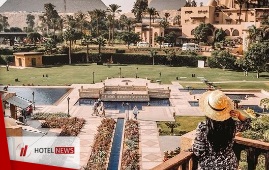
Two consecutive months of profit growth gave way to a contraction in November for hotels in the Middle East & North Africa as GOPPAR declined year-over-year. The region had a nice, albeit short, run of GOPPAR gains prior to November’s downtick, but the drop is more in line with MENA’s overall dim 2019 performance. If there is a silver lining, the 1.7% drop is the smallest YOY decrease of the year and far smaller than the YTD number of -4.2%. Rooms revenue was down 2.6% compared to the same month last year, dragged down by a 5.1% drop in room rate. Occupancy for the month was up 1.9 percentage points to 76.2%. The drop in rooms RevPAR, along with a 1.5% YOY decrease in F&B RevPAR, equated into an overall decrease in total revenue of 2.7% YOY. And while generating revenue in November proved onerous, expense control was a bright spot. Total overhead costs on a per-available-room basis were down 3.4% YOY and total labour costs were also down—2.4% YOY. Utility expenses came down 3.0%, while overall Property & Maintenance costs were down 2.6%. In contrast to the totality of MENA, Egypt pushed out a positive month of profit, with a 2.9% overall YOY jump. This came on the back of a 1.3% rise in RevPAR and a 3.6% rise in TRevPAR. The resort town of Sharm el-Sheikh saw a huge GOPPAR leap of 65.1% YOY, bolstered by a 28.6% jump in RevPAR. The fortunes of Sharm el-Sheikh hotels have turned for the better after having dealt with its share of terrorist attacks, including in 2005 and, in 2015, when a Russian jetliner departed the city and subsequently exploded over Sinai killing 224 people onboard. Thereafter, the UK grounded flights to the beach getaway, and weekly arrivals fell from 10,000 to zero. In December, flights resumed from the UK, which should put a further jolt into the resort town’s tourism economy. Meanwhile, Egypt’s capital, Cairo, did not share the same fortune, checking in with a 1.5% decrease in GOPPAR YOY. RevPAR was down 3.4% YOY, a result of both a drop in rate (down 1.9%) and occupancy (down 1.2 percentage points). TRevPAR for the month was up 0.8% due to a 9.2% YOY increase in F&B RevPAR. It was another down month for Dubai, which saw its profit drop 9.6% YOY. The emirate has only had one month of YOY GOPPAR growth in the last 15, plagued by excessive and unabated hotel supply and development. Coming months and years will require hoteliers to be more cost-conscious than revenue-conscious, according to many experts. RevPAR in Dubai was down 9.3% YOY in November, as room rate dropped 8.6% YOY combined with a -0.7% percentage-point decline in occupancy. Total overhead costs declined in the month, down 6.2% YOY, but not enough to produce positive profit growth, evidenced by a 0.4 percentage-point decline in profit margin.
Create: Dec 30, 2019 Edit: Dec 30, 2019 International News
